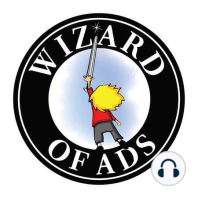5 min listen
Multilingual You
ratings:
Length:
6 minutes
Released:
Mar 23, 2015
Format:
Podcast episode
Description
You’ve been told, “the whole is greater than the sum of its parts.” But it’s a misquote. What Wolfgang Köhler said more than a hundred years ago – in 1910 to be exact – is that “the whole is different from the sum of its parts.”Kohler was famously irritated for the next 57 years by the insistence of writers to turn his statement into something different than what he was saying.But he shouldn’t have been surprised. As a psychologist, Köhler knew that we collect sensory data from verbal and nonverbal sources and then add it up into an “impression” that may or may not be accurate.The reason our impressions are so often wrong is because few of us ever studied a language that wasn’t a language of words or numbers.You didn’t realize that numbers are a language? There are things that can be said in the language of math that can be translated into no other. If you want to learn advanced mathematics, just think of it as a foreign language and you’ll be able to learn it much more quickly.Benjamin Zander delivers a charming and funny and profound TED talk about The Transformative Power of Classical Music. He begins with a short segment on the piano from Chopin, then pauses to explain the relationship between two of the principal notes in the sequence.So let’s see what’s really going on here. We have a B. This is a B. (plays the note) The next note is a C. (plays the note) And the job of the C is to make the B sad. And it does, doesn’t it? (Laughter) Composers know that. If they want sad music, they just play those two notes. (plays more notes, ending with B-C-C-C-C) But basically, it’s just a B, with four sads. (Laughter)”This is the moment when we realize that Zander has just taught us a two-syllable word. In the language of music, “sad” is spelled B-C.Zander then says,I’ve one last request before I play this piece all the way through. Would you think of somebody who you adore, who’s no longer there? A beloved grandmother, a lover — somebody in your life who you love with all your heart, but that person is no longer with you. Bring that person into your mind, and at the same time, follow the line all the way from B to E, and you’ll hear everything that Chopin had to say.”You listen for exactly 107 seconds as the music written by Chopin triggers detailed memories of specific times. You understand perfectly what Chopin was trying to say.This is when it really hits you that music is a language. And if you control the music, you control the mood of the room.Color, too, is a language.Symbols are a language.Motion is a language.I believe there are exactly 12 languages of the mind and they’re self-referential. This means you will find them embedded within each other and they can be added together to create distinct artifacts.Tempo is the Motion component within Music.Symbol plus Motion equals Ritual.Anger plus Joy equals Cruelty.1Sadness plus Surprise equals Disappointment.1These are just a few of the equations you’ll be taught when you look into Portals and the 12 Languages of the Mind. I’m not sure when we’ll be teaching it again, but if you’d like to receive an advance notice from Vice-Chancellor Whittington before he publicly posts it on the schedule, just ping Daniel@WizardAcademy.orgFourteen students attended last week’s class and none of them were writers. But I think you’ll be impressed with the things they wrote during a brief exercise on the second day of class.You’ll find 13 of their compositions in today’s rabbit hole. We’re editing a video of the 14th student that we’ll post in a week or two.Fascinating.Roy H. Williams
Released:
Mar 23, 2015
Format:
Podcast episode
Titles in the series (100)
Thoughts to Think In the New Year by Wizard of Ads Monday Morning Memo
